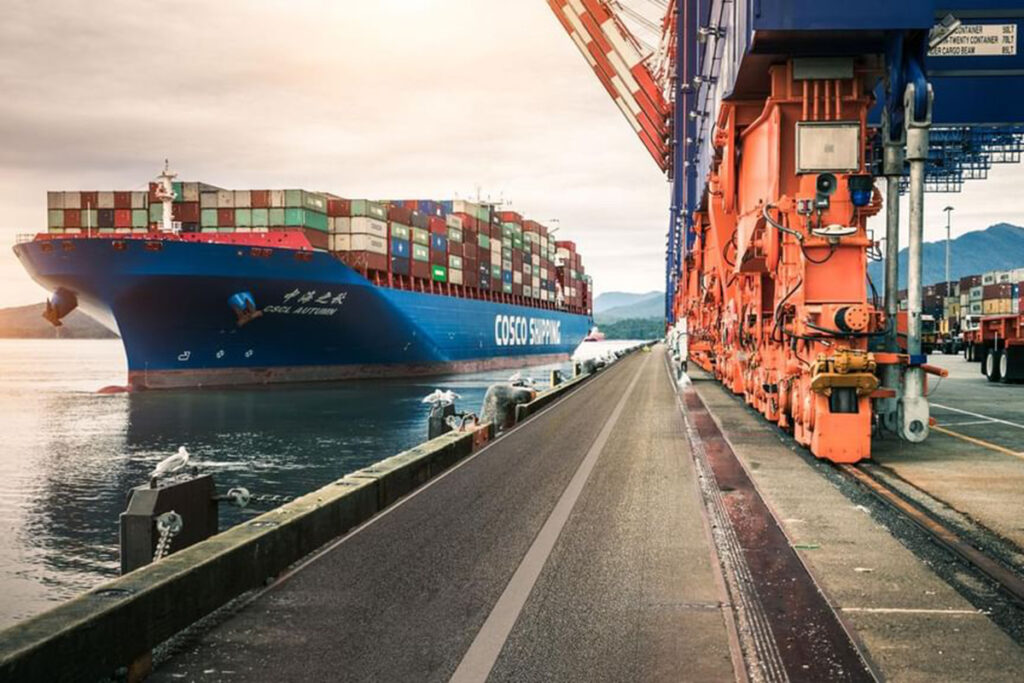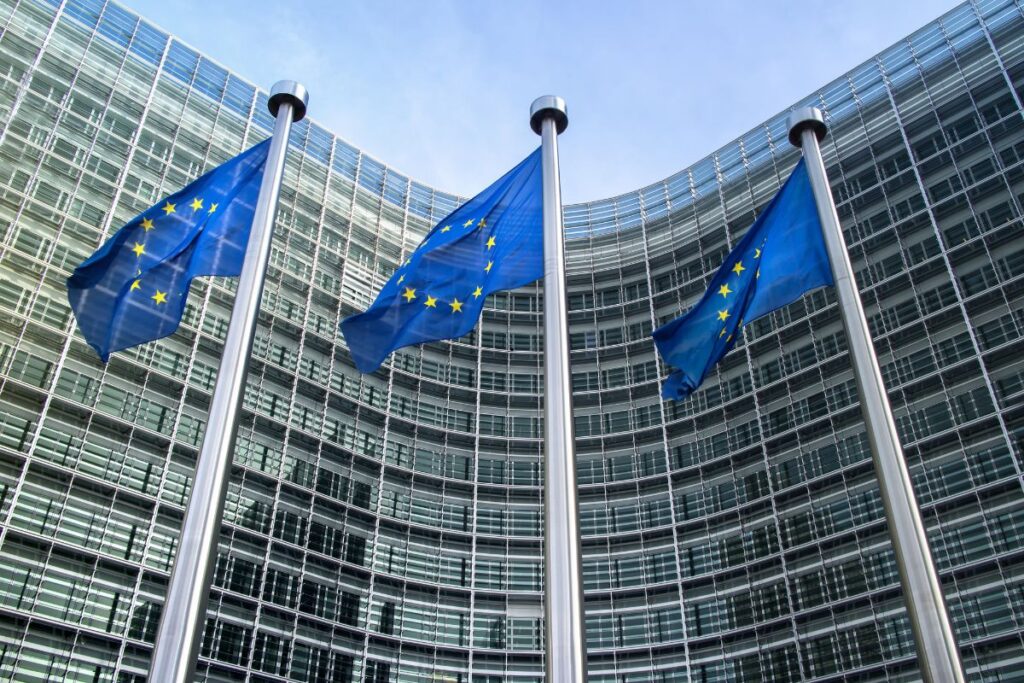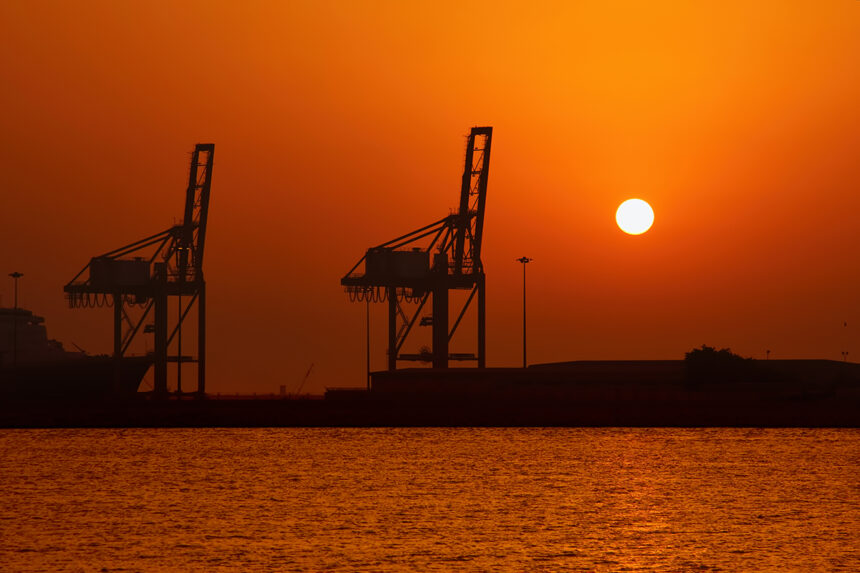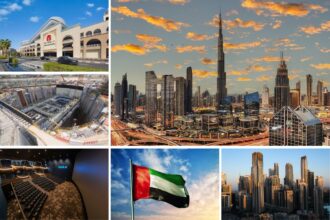As President Donald Trump’s tariffs change global commercial patterns, with trade experts who estimate that effective measures create a shopping wall of almost $ 1 around the United States economy, Gulf’s states are demonstrating how the canopies of a pace in the rhythm.
The search for the United Arab Emirates of the integral agreements of Economic Association (CEPAS) is emerging as a potential model for countries that seek to isolate themselves from the clashes of the growing protectionism, according to regional experts.
“The UAE Embeds iTs Relations with Countries Through strains in A Way That Helps tohe Relationships Outlive Incumbents, Whether they are democratically elected or other ABADICIC FELLOW ATADICIC, ABADICIC FELLOW ATADICIC, ABADICIC FELLOW ATMADEMIC, ABADE Arab business.
“It is still the leading diplomacy of the leader, in which the EAU have an expert bone for some time, but now it is becoming something consecrated in formal agreements that extend between multiple spheres and sectors,” he told Suwaidi.
Since 2022, the EAU have signed or concluded strain with 27 countries, including India, Indonesia, Turkey, South Korea, Georgia, Malaysia, New Zealand, Kenya and the Republic of Congo. These agreements aim to eliminate rates, improve market access and promote investment in several sectors.
Beyond commercial barriers
The EAU approach demonstrates a change of the traditional approach in reducing the tariff to what Suwaidi describes as “strategic interdependence”, a concept that can sacrifice lessons for other nations that face a wave of protectionism.
“It is no longer about strategic autonomy. It is about creating strategic interdependence, because the only way we can collectively survive in a world where multilateral action is going back,” he told Suwaidi.

This interdependence has practical applications. Although Trump’s tariffs have attacked the main economies, including China, the European Union, Canada, Mexico, Japan and South Korea, with US companies that are now expected to pay between $ 1 billion and $ 2 billion costs) countries have largely exempt, partially attributed to the United States maintaining a commercial surplus with these nations.
Exemption demonstrates how strategic economic relations can create diplomatic leverage. After a meeting between Hassan Al Nuaimi, a prominent Emirati business leader, and President Trump, the EAU promised important investments in the United States, partly in artificial intelligence.
“Abu Dhabi is strategically positioning himself with thesis investments,” he told Suwaidi. “This creates a certain amount of leverage because there is a strong personal bond and a leading diplomacy between the EAU and the United States.”
Diversity as protection
For countries that face the direct impact of US tariffs, the Eau’s diversity strategy offers valuable lessons, according to Mahdi Ghuloom, a junior member in geopolitics in The Observer Research Middle East.
“The Eau’s strain strategy has been designed to develop a diversified commercial portfolio and become a shopping center,” Ghuloom said Arab business. “While Trump rates are a separate problem, the EUA’s strain impulse reflects the forecast and an effort to isolate itself from global commercial volatility.”
This approach is aligned with the ambitious target of the EAU to reach the AED4 billion (approximately $ 1.09 billion) in trade by 2031.
“The diversification scale reduces dependence on any market block,” Ghuloom added, noting that when the proliferation of strains, they help mitigate the negative clashes of specific business partners.
The search for the EAU of bilateral conversations with the European Union marks a significant change in GCC-EU free trade negotiations for a long time, which was in the late 1980s. These conversations have confirmed the bone and begin soon. This bilateral approach can be particularly valuable since the EU faces a potential impact of tariffs and deal with what the president of the European Central Bank, Christine Lagarde, has called an “existential moment” for European economic independence.

Global undulation effects
Despite the current exemption of the GCC of direct tariffs, experts point out that the Gulf states cannot escape the wider economic turbulence CAA by the fee war.
“In the United States, it is likely that tariffs lead to greater inflation and less economic growth. Taking into account the importance of the economy of the United States, this could, in turn, global economic growth,” said shipping analyst Niels Rasmussen to CNBC.
Gulf countries import a wide range of manufactured products, many with Chinese components. Higher global production costs can lead to more exenous imports even without direct tariffs. In addition, as companies seek to avoid high rates, changes in logistics and commercial flows can alter maritime transport dynamics: the spine of the Gulf economies.
“The Eau strain include provisions on investment, competition and public procurement. This points to regulatory maturity and strengthens the credibility of the EAU as a destination for long -term investment,” Ghuloom explained.
This integral approach could help compensate for possible negative indirect effects of world commercial interruptions, including inflation pressures and market volatility.
New commercial architecture
As countries around the world respond to Trump administration tariffs with their own retaliation measures, Canada that impose 25 percent tariffs on US goods, Mexico announces similar plans, China implementing additional tariffs and export controls in critical minerals, global commercial architecture seems increasingly fragmented.
In this context, the Suwaidi suggests that the CEPA represent a bilateral pragmatic approach to maintain commercial flows. “When we participate in strain diplomacy, we are also inoculating against possible inconveniences emanating from tariffs creating economic associations and that notion of interdependence.”
Ghuloom dismissed Conerns that strains could create exclusive commercial blocks that hinder global trade. “The strains are not mutual exclusive with large commercial blocks,” he said, citing examples in which countries negotiate with both the individual states of the Gulf and with the CCG as a whole.
As the Organization for Economic Cooperation and Development predicts that Trump’s tariffs could lead to stagflation in North America, with increasing inflation and reduced economic growth, Gulf strain strategy can offer a relationship template.
The Maersk shipping giant, the second major oceanic carrier in the world, said in a statement to CNBC that the tariff plan in its current form “is clearly not good news for [the] Global Economy, Stability and Commerce “, highlighting the urgency of countries to develop commercial resilience strategies.








